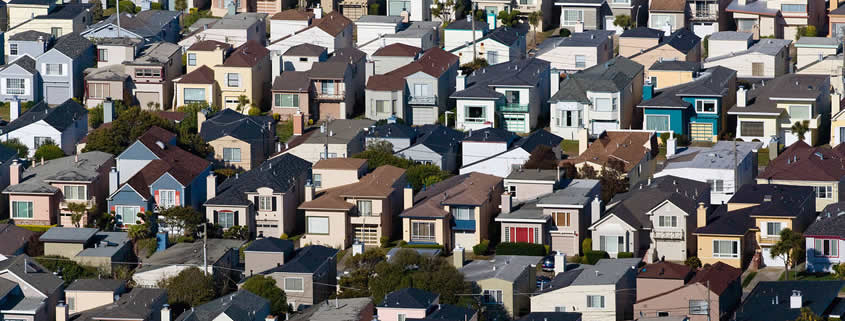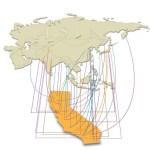PIKETTY’S WEALTH DRIVEN INEQUALITY: VIRTUALLY ALL IN HOUSING?

Homes in Daly City, Calif., a San Francisco suburb whose population exploded in the 1940s with the construction of low-cost housing tracts. PHOTO: ALAMY
By Wendell Cox
The Economist headline reads: “Through the roof: Rising house prices may be chiefly responsible for rising inequality”
This is no surprise to those of us who have been chronicling the loss of destruction of middle income housing affordability where urban containment policy has been implemented from Australia to Canada, Ireland, New Zealand, the United Kingdom and the United States.
Matthew Rognlie, a graduate student at the Massachusetts Institute of Technology, has critiqued the highly publicized work of Thomas Piketty (Capital in the 21st Century) to suggest that rising inequality is largely due to the accumulation of wealth in housing.
House prices have doubled, tripled or more relative to incomes, as regulators have banned or seriously limited new housing on the urban periphery. Younger households have been unable to afford houses as older households have watched their wealth increase.
The “writing” has long been on the wall. Legendary urbanist Sir Peter Hall lamented the potential abandonment of the “ideal of a property owning democracy” (see The Costs of Smart Growth Revisited: A 40 Year Perspective) under urban containment policy.
Rognlie suggests that a better title for Piketty’s book would have been Housing in the Twenty-First Century. According to Rognlie: “the literature studying markets with high housing costs finds that these costs are driven in large part by artificial scarcity through land use regulation …. A natural first step to combat the increasing role of housing wealth would be to reexamine these regulations and expand the housing supply.”

